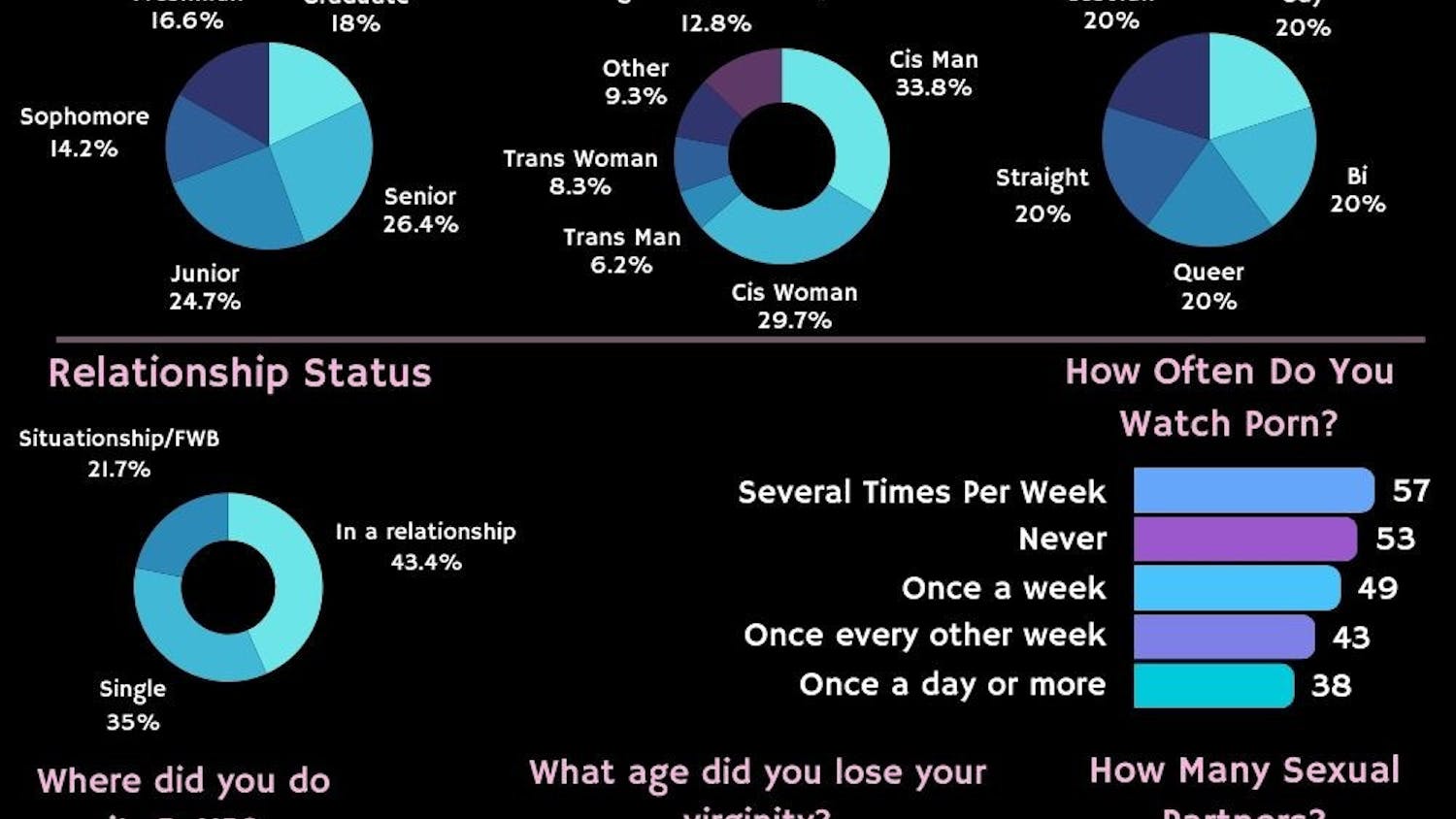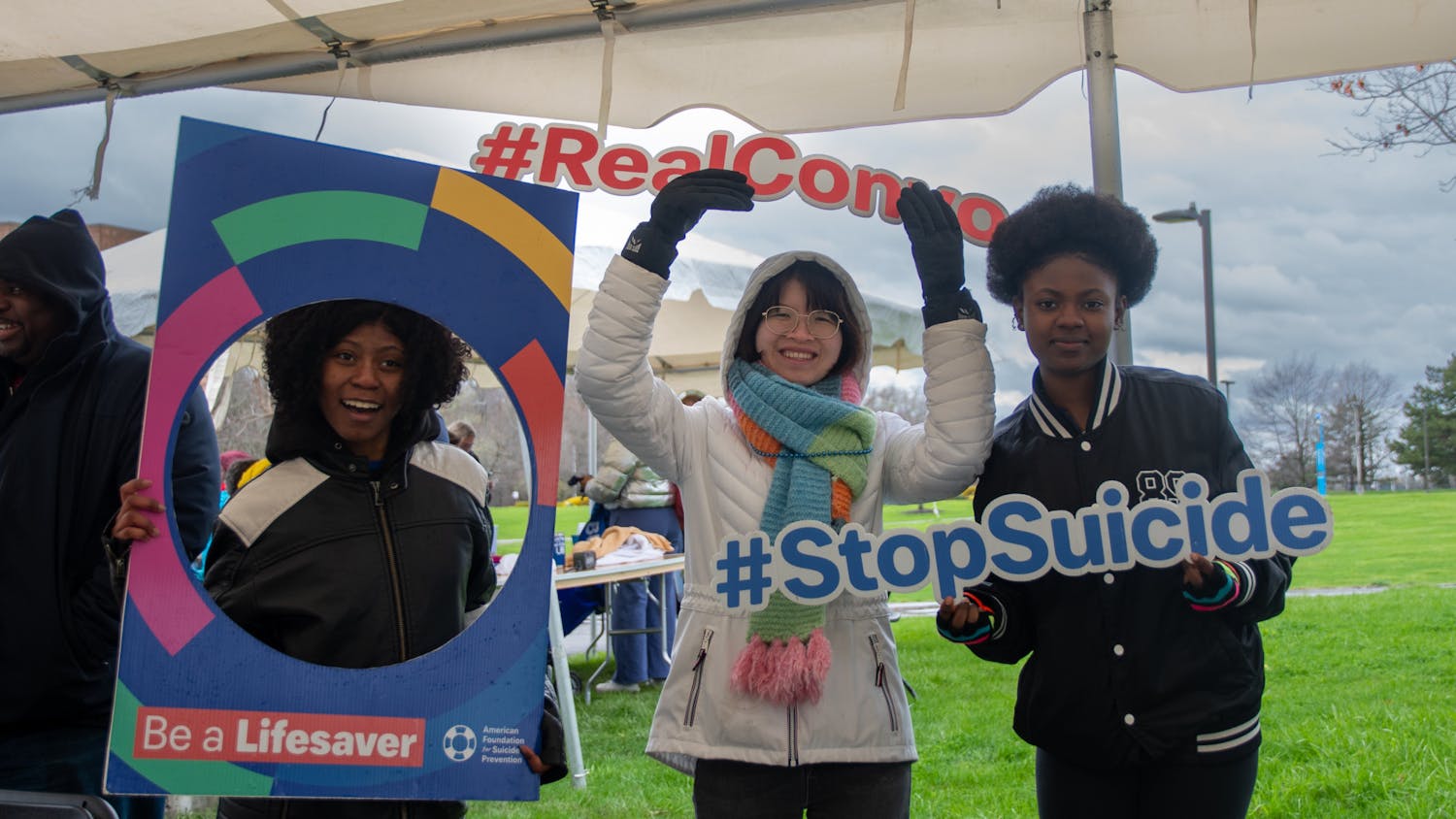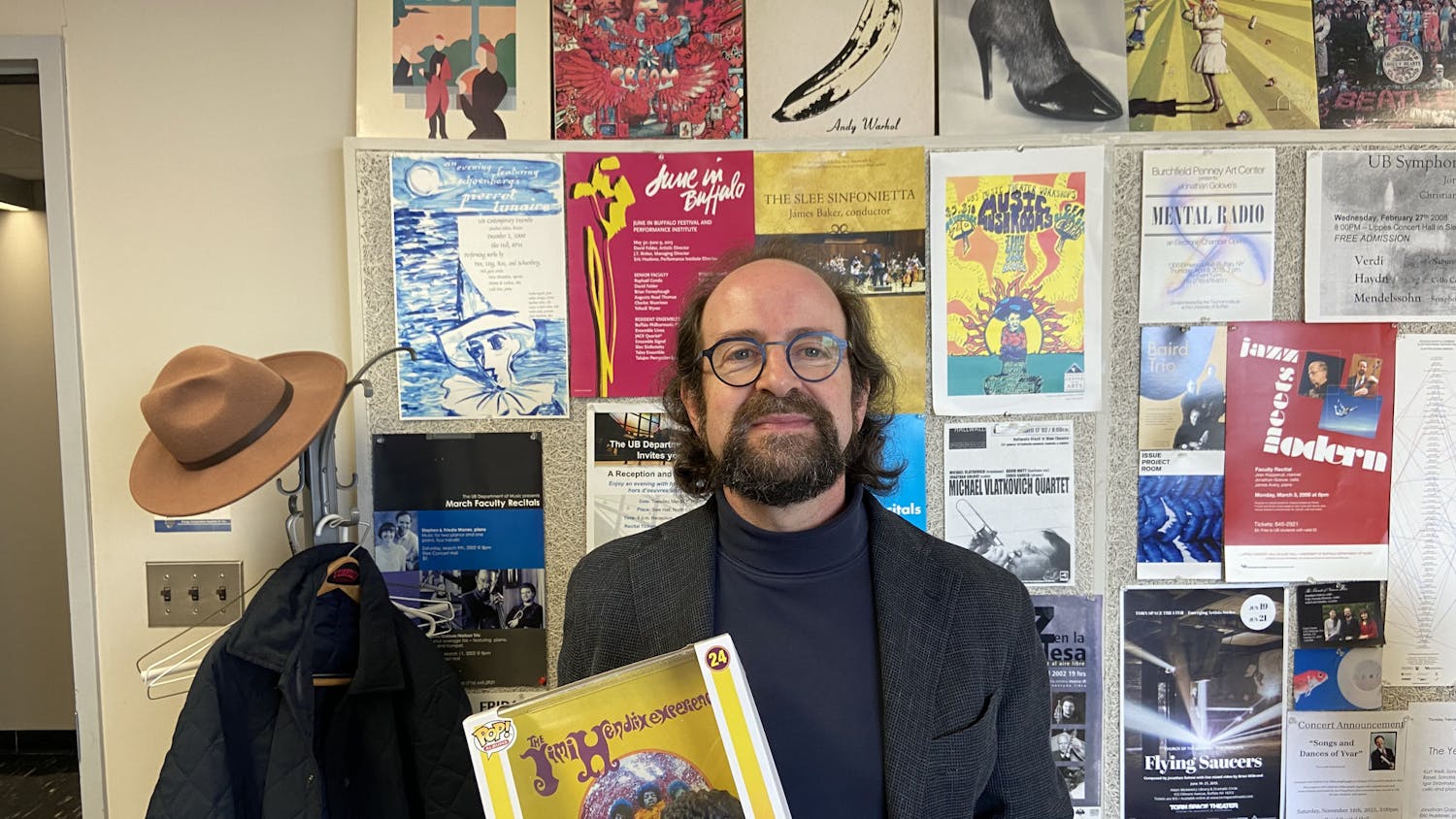Vanessa Dwyer left Capen 567 crying Wednesday afternoon after the Faculty Senate postponed the vote on UB Fossil Free’s divestment proposal.
Dwyer presented the 20-minute divestment proposal and took questions from the Senate. The Senate was preparing to vote until one senator realized there weren’t enough members present at the meeting to make the proceedings valid. The vote is postponed until April 26.
“I put so much work into this campaign and to see these little technicalities hold it back … is just really disheartening,” Dwyer said.
Dwyer and other members of UB Fossil Free present at the meeting said they are concerned with how the UB Foundation – a private entity independent from the university that controls $1 billion of UB donations – handles its finances and discloses information.
The proposal, crafted by UB Fossil Free, calls for UB to withdraw funds from fossil fuel industries in an effort to hold these industries accountable for greenhouse gas emissions, oil spills, extreme climate events and the effects of global warming.
SUNY Brockport, Plattsburgh, Geneseo and Oneonta have active fossil fuel divestment campaigns and SUNY ESF made an official statement a year ago, Dwyer said.
The proposal requests that UB does not invest any more into the fossil fuel industry, and divests any current funds the university has invested. The proposal also requests that UB reinvests those funds into “socially responsible” investments for clean energy. In addition, the proposal calls for the university to release quarterly updates available to the public detailing the university’s progress with these efforts.
“Rather than investing in an immoral and declining industry, we should be investing in industries that have a decent future,” Dwyer said.
Dr. Philip Glick, Faculty Senate chair, explained that while proposals of this nature would not normally be under Faculty Senate’s jurisdiction, it is “not out of the realm” of social justice, freedom of speech, academic freedom and supporting students.
“And if anyone in this room thinks that global warming is not real then we’re really being deniers,” Glick said.
By the time UB Fossil Free presented to Faculty Senate, the proposal already had 1,600 signatures from the Student Association and Graduate Student Association, and is currently pending approval from the Professional Staff Senate.
The exact number of endowments invested in the fossil fuel industry is unknown due to UB Foundation’s “lack of transparency,” Dwyer said.
Dwyer said she is concerned about the “opaque reporting practices” of the UB Foundation relating to its finances because such practices are “inconsistent” with the right of the taxpayers to know how public institutions like UB are functioning.
“We believe that those financially contributing to UB have a right to know the impact that their money is creating,” Dwyer said.
Jessica Landry, a senior political science major and member of UB Fossil Free who was present at the meeting, also felt disappointed.
“You expect when you attend something like this, the people who are on the executive committee and the e-board will show up. The simple fact that they didn’t show up delays our process hugely,” Landry said.
Landry said Dwyer met with President Satish Tripathi yesterday and asked him to endorse the divestment proposal, but he “diverted the entire conversation.”
Alexa Ringer, a freshman environmental design major and UB Fossil Free member who attended the meeting, said both the meeting and the general administrative response to the divestment campaign are “infuriating.” She believes the administration is “purposefully keeping its thumb on students”
“I mean, the entire campus was designed to dissuade protests,” Ringer said. “You would hope that in this very tumultuous era, they would perhaps look back and say maybe that wasn’t such a good idea …[but] they are clearly very happy that it was built that way.”
For Landry, divestment is more than just an environmental issue; it is also about transparency within the university’s administration and the UB Foundation.
“This is not just some silly tree-hugging issue… it is a movement not just for environmental change, but for social change and holding people accountable,” Ringer said.
Landry feels the administration, and especially Tripathi, have made it “extremely clear” that they do not want to talk about the Foundation.
Despite Wednesday’s setback, Ringer is not going to stop fighting for divestment.
“It’s very clear that the administration is not going to be helpful. It’s going to be an uphill battle, but we are not going to stop,” Ringer said.
Maddy Fowler is the assistant news editor and can be reached at maddy.fowler@ubspectrum.com.





